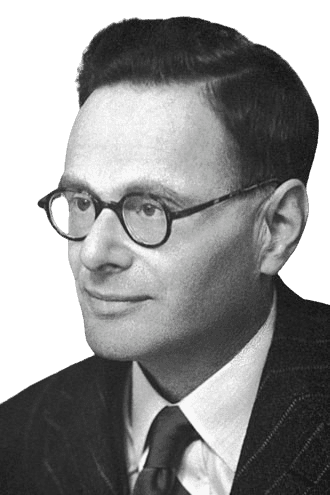Life and achievements
Early life
Hans Adolf Krebs was born on August 25, 1900, in Hildesheim, Germany, in a home that could be characterized as an intellectually charged one. His father, Georg Krebs, was a renowned ear, nose, and throat surgeon, while his mother, Alma Davidson Krebs, was of Jewish-Silesian origin. He had a sister, Elizabeth, who was older than him, and a brother, Wolfgang, who was younger.
Krebs was academically inclined right from childhood and joined the Gymnasium Andreanum school in Hildesheim. His learning was interfered with when he was drafted into the German Army in September 1918 during the last stage of WWI. In April 1919, he took an emergency high school examination and received high scores, which he thought may have been because of sympathetic grading.
After the war, Krebs started attending the University of Göttingen in December 1918, following in his father's footsteps and choosing the course of medicine. His interest in science, especially biochemistry, developed during his university education at some institutions, such as the University of Freiburg and the University of Berlin.
He began his scientific work at an early age, and in 1923, he published his first scientific paper titled ''A Histological Method for Staining Tissues.'' He received his M.D. in 1925 from the University of Hamburg, and although he did some clinical work for a short period, he switched to biochemical research. This was the starting point of a career that would later bring an absolute change in the biochemical and metabolism cycles.
Legacy
Hans Krebs is best known for his findings in biochemistry, specifically in the metabolic cycles that revolutionized energy production among living organisms. Krebs's discovery of the urea cycle in 1932 and the citric acid cycle in 1937 offered basic knowledge regarding cell metabolism.
The citric acid or Krebs cycle became one of the most significant biological processes vital in cellular respiration, converting food to energy. He was awarded the Nobel Prize in Physiology and Medicine in 1953. The fact that the cycle was able to articulate how organisms can metabolize nutrients to energy cemented Krebs's legacy in science.
Krebs' achievements are not limited to his Nobel Prize-winning work. He also co-discovered the glyoxylate cycle, a process similar to the citric acid cycle in plants and bacteria, thus proving his impact on animal and plant physiology.
He is remembered for several awards, including the Sir Hans Krebs Prize in biochemistry, which the Society of Friends of Hannover Medical School offers. Furthermore, his work remains pertinent in areas like cancer and metabolic diseases, which is why Krebs is a giant in medical research.
The University of Sheffield, where Krebs was employed for many years, even set up the Krebs Institute in 1988 for biochemical research across the disciplines. The Krebs Institute continues to inspire future scientists.
Milestone moments
Aug 25, 1900
Creation of Hans Adolf Krebs
Hans Krebs was born into a middle-class German family in Hildesheim, a town in the Kingdom of Prussia.
His father, Georg, was a well-settled surgeon, and his mother, Alma, encouraged the family's academic ambitions.
Since childhood, Krebs was familiarized with science due to his father's medical practice.
Jun 6, 1925
Earn a medical degree and get a degree upon graduation
Krebs graduated in 1925 with a medical degree from the University of Hamburg, which was the beginning of his career in science.
He became more interested in research than in practicing as a doctor while studying.
This decision caused him to examine the relationship between medicine and chemistry, resulting in his biochemical training at the Pathological Institute of the Charité Hospital in Berlin.
Apr 16, 1932
Identification of the Urea Cycle
Krebs discovered the first breakthrough in his scientific career in 1932 by finding the urea cycle.
While working in Germany for the University of Freiburg, Krebs discovered the metabolic pathway through which the liver metabolizes the toxic ammonia into urea, a substance expelled from the body via urine.
This discovery was significant because it was the first metabolic cycle discovered, thus opening the door to further studies of how the body metabolized substances and released waste.
Mar 18, 1937
Krebs Cycle or Citric Acid Cycle
In 1937, while working at the University of Sheffield in England, Krebs made his most significant contribution to biochemistry, especially given the discovery of the citric acid cycle.
This cycle, also called the Krebs cycle, is a series of chemical reactions in the mitochondria of cells and is very important in producing energy.
The Krebs cycle states how organisms' carbohydrates, fats, and proteins are metabolized into carbon dioxide and water, releasing the energy in ATP.
